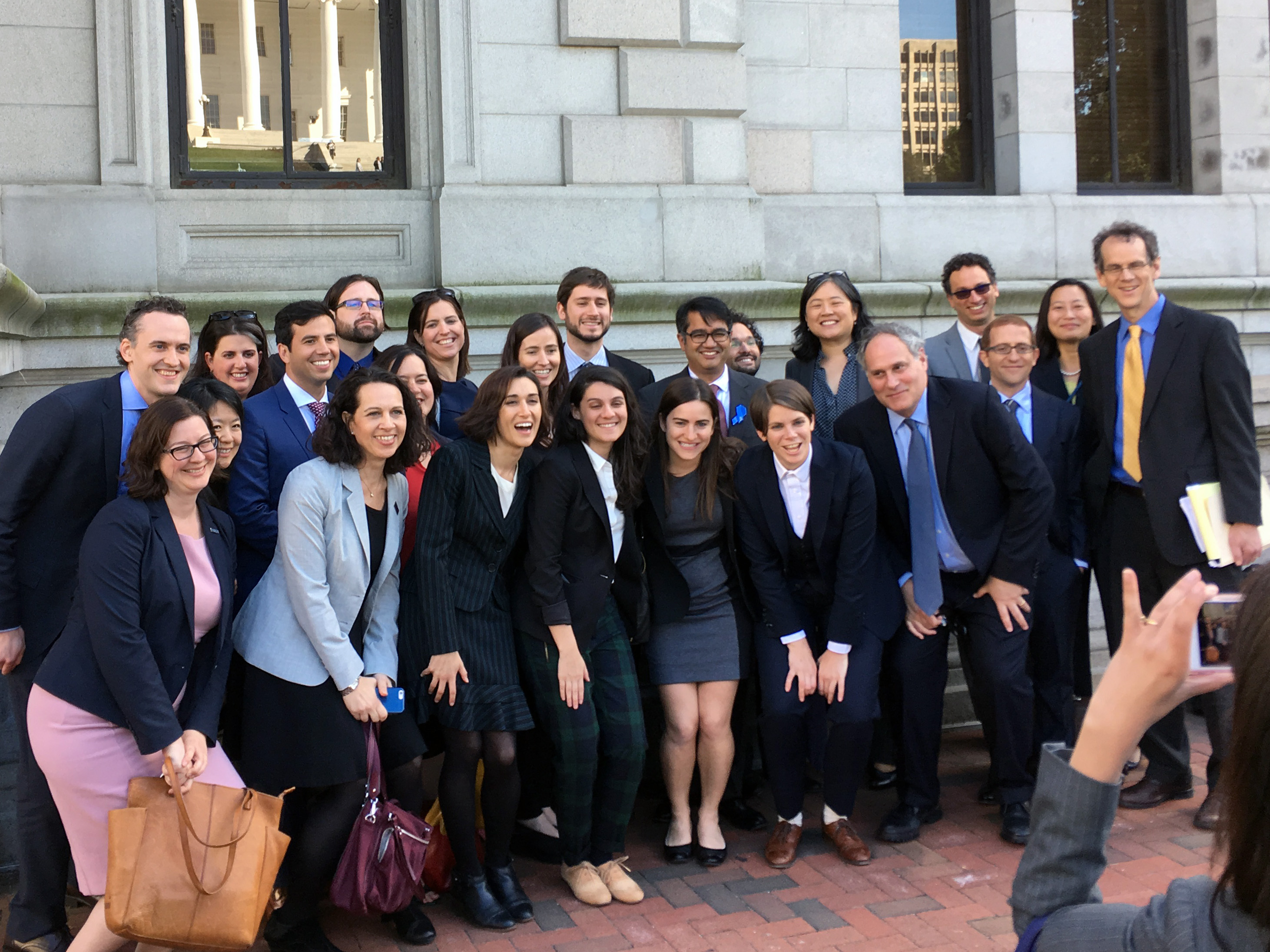After Richmond, Muslim Ban Legal Challenge Heads to Seattle
By Rachel Nusbaum, HIAS.org
May 11, 2017

Plaintiffs and their attorneys from ACLU and NILC gather for a post-hearing photo outside the Fourth Circuit Court of Appeals in Richmond, Virginia on May 8, 2017.
(Rachel Nusbaum/HIAS)
On Monday, the Fourth Circuit Court of Appeals in Richmond, Virginia heard oral arguments in the case brought by HIAS, IRAP and others, challenging the constitutionality of President Trump’s Muslim Ban.
“The first executive order was signed on Holocaust Remembrance Day. We take that personally,” HIAS Vice President for Policy and Advocacy Melanie Nezer said from the courthouse steps, just moments after the judges finished hearing arguments on the case.
“We are an organization that for 135 years has been resettling refugees, reuniting people with loved ones, reuniting families and bringing people to safety in this country. We see no reason why that should stop today,” Nezer said.
Omar Jadwat of the ACLU argued on behalf of the plaintiffs before the 13-judge panel, while Acting Solicitor General Jeffrey Wall made the government’s case. Much of the more than two-hour hearing centered on whether President Trump’s anti-Muslim statements during the campaign should be taken into consideration as the court weighed a ruling.
HIAS’ challenge to this executive order is one of several currently working their way through the courts.
The next major hearing to watch is the challenge in the Ninth Circuit Court of Appeals, which will hear oral arguments on May 15. This case, State of Hawaii, et al. v. Trump, is of particular interest because its ruling is the basis for the nationwide stay currently keeping both the Muslim and refugee bans from taking effect.
The first ‘friend of the court’ brief by multiple resettlement agencies —filed by HIAS, the IRC and USCRI—was recently submitted in support of the plaintiffs in the Ninth Circuit.
Along with halting the issuance of visas to anyone from the six designated countries, the revised March 6 executive order would suspend the U.S. Refugee Admission Program, preventing humanitarian organizations like HIAS from carrying out their mission of resettling refugees fleeing violence and persecution.
As the amicus brief by the three resettlement agencies notes, “refugee resettlement in the United States lies at the heart of HIAS’ work,” and the “opaque implementation of the Order has caused confusion and extreme, dire consequences for HIAS’ refugee clients.”
Thanks to the preliminary injunction issued by the Hawaiian court in this case, that work has been allowed to continue. But this reprieve is only temporary—allowing us to continue to welcome new arrivals while the courts weigh the merits of the legal challenges to the order.
Should the Ninth Circuit lift the restraining order, or if the courts ultimately defer to the President and affirm the constitutionality of the Muslim and refugee ban, the refugee program could once again be forced to a halt, stranding thousands of refugees who need a safe place to live and raise their children. A ruling in favor of the President would extend family separations, perhaps indefinitely, as loved ones find themselves trapped on opposite sides of this order.
The Ninth Circuit Court of Appeals will livestream the proceedings, and they will be aired live on C-SPAN beginning at 12:30pm EST on May 15.
We’ll be watching closely.
For up to the minute news and updates, follow HIAS (@HIASrefugees) on Twitter and Facebook.


